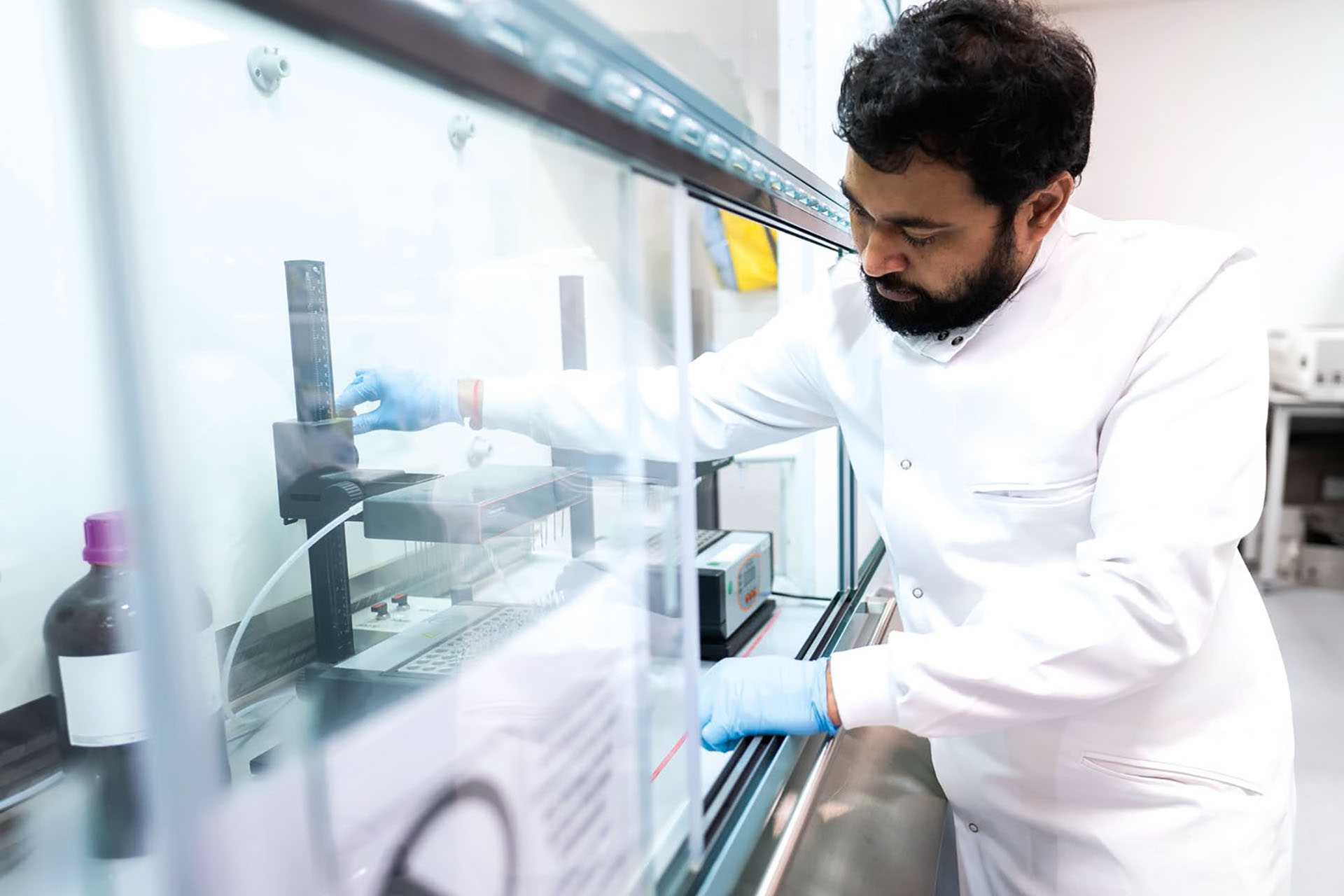The conditions supporting disease emergence, such as climate change, urbanisation and shifting farming practices, are also intensifying, increasing the risk of future outbreaks. Investigators from The Pandemic Institute are already addressing many emerging threats, including monkeypox, influenza and mosquito and tick-borne viruses such as Crimean Congo Haemorrhagic Fever.
Despite the clear and growing risk, the world was largely unprepared for COVID-19. There was inadequate global surveillance of emerging diseases, and the international response was fragmented and slow. Even with the use of vaccines and effective treatments, more than 15 million people are thought to have died.
Awful though the COVID-19 pandemic was, the truth is that it could have been even worse, and the next pandemic might be.
With initial funding of £10 million, including seed funding from Innova Medical Group, the University, along with its partners, have:
- Established The Pandemic Institute
- Scaled up our key research and innovation programmes
- Driven forward our social science and policy programmes
- Developed a Human Challenge Facility, to accelerate drug and vaccine development
- Stepped up work on a flu vaccines.
The Institute, and its partners, are also mapping our skills and expertise to tackle the most immediate pathogen threats. In response to the emerging public health emergency caused by Monkeypox, we acted quickly to fund nearly £500,000 of pump-priming research into the origins, transmission and spread of the virus, as well as supporting new diagnostics and vaccines. Our activities have led to a further £10 million from the UK government and commercial partners.
We are now calling for game-changing investment of £60 million over five years to secure the work of The Pandemic Institute for generations to come.
With additional funding, we will rapidly expand our ongoing programme against current threats and be ready to act immediately as future threats emerge, ensuring we have the right tools, methods and infrastructure in place.
The Pandemic Institute is providing comprehensive capability across three areas of connected work fundamental to controlling emerging threats:
- Preparedness
- Response
- Recovery.
To underpin this work, we are developing the next generation of emerging infection researchers in the UK and abroad, offering outstanding individuals a range of opportunities in disciplines ranging from public health to computational science, vaccinology to behavioural sciences.
Back to: The Pandemic Institute
